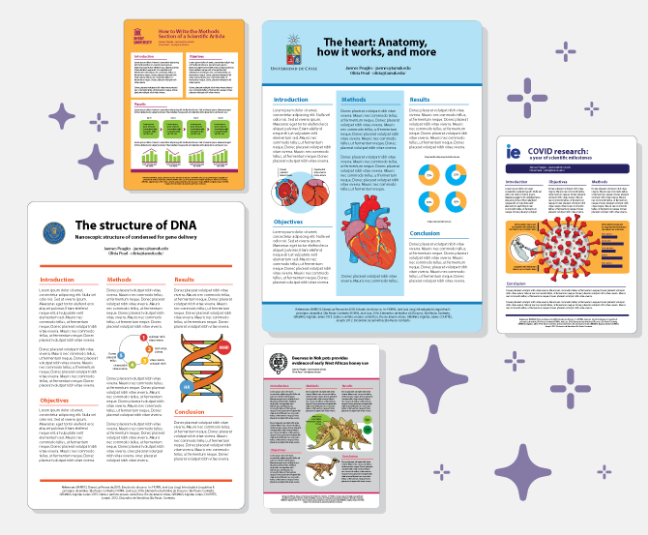A Master’s degree, often considered the next step in higher education following a Bachelor’s degree, opens doors to advanced knowledge and expertise in a wide range of fields. These programs provide an opportunity for students to delve deeper into their chosen subjects, gain specialized skills, and enhance their career prospects. With an array of Master’s degrees available, from research-intensive programs to professionally focused ones, the journey to mastery is as diverse as the subjects themselves. In this article, we will embark on a comprehensive exploration of Master’s degrees, clarifying the various types, their distinctions, and essential considerations for prospective students.
What Is A Master’s Degree
A Master’s Degree is a graduate-level academic degree that typically follows the completion of a Bachelor’s Degree. It represents a higher level of expertise and specialization in a particular field of study. Master’s programs vary in duration but typically take one to two years to complete, depending on the country and the specific program.
Master’s Degrees are offered in a wide range of disciplines, from the humanities and social sciences to natural sciences, engineering, business, and healthcare. They are pursued by individuals seeking advanced knowledge and skills in their chosen field, as well as those looking to enhance their career prospects and qualifications.
Types Of Master’s Degrees
There are two primary types of Master’s Degrees based on the method of graduating:
Taught Degrees
Taught Master’s Degrees are structured programs comprising taught courses and modules led by a tutor or program leader. Students typically attend weekly lectures and seminars, progressing through these structured modules before culminating in a final project or dissertation, which often accounts for the final third of the program. While some taught master’s programs have a significant research component, they are primarily designed to enhance professional practice and career development. While it is possible to transition from a taught master’s to a Ph.D., most students leverage the specialized knowledge gained in these programs to advance their careers.
Also read: Master’s vs PhD: Which Degree Is The Right One for You?
Characteristics:
- Emphasis on coursework and classroom instruction.
- Curriculum-driven with a set of required and elective courses.
- May include a capstone project, final exams, or a dissertation.
- Ideal for individuals seeking specialization or career advancement.
- Typically shorter in duration than research-based degrees.
Research-Based Degrees
A Research Master’s Degree, often referred to as MRes, primarily emphasizes independent research and serves as a preparatory step towards pursuing a PhD or a career in research. Approximately 70% of the coursework in MRes programs involves independent research, and these programs typically require a substantial dissertation or research project. While there are no traditional taught modules, students receive training in research methods, ethics, and the art of writing research proposals.
These articles might be of your interest as well:
From Theory to Practice: Mastering Research Methods for Success
A Deep Dive Into The Importance Of Ethics In Science
Characteristics:
- Emphasis on independent research and critical thinking.
- Students work closely with faculty mentors.
- In-depth exploration of a specific research topic.
- The thesis or dissertation is a key component, often published.
- Typically longer in duration than course-based degrees.
- Ideal for those planning to contribute to academic research or specific industries.
Benefits Of Earning A Master’s Degree
Earning a Master’s degree offers a multitude of benefits, including the potential for higher earning potential, increased job opportunities, the acquisition of more specialized skills, and the opportunity to assume leadership roles and positions. It not only enhances one’s knowledge and expertise in a specific field but also opens doors to advanced career prospects, making it a valuable investment in personal and professional growth.
Higher Earning Potential
One of the most compelling reasons to pursue a Master’s degree is the potential for higher earnings. Statistics consistently show that individuals with Master’s degrees tend to earn more than those with only Bachelor’s degrees. This increase in earning potential can vary by field and location but is generally a strong motivator for many graduate students. Employers often recognize the advanced knowledge and skills that come with a Master’s degree and are willing to compensate graduates accordingly.
Increased Job Opportunities
A Master’s degree can significantly expand your job prospects. It opens doors to positions and industries that may not be accessible with only a Bachelor’s degree. Many specialized roles and leadership positions require or prefer candidates with advanced degrees. Additionally, some fields, such as education and healthcare, may mandate a Master’s degree for certain roles, making it essential for career advancement.
More Specialized Skills
Master’s degree programs are designed to provide in-depth knowledge and specialized skills in a particular field or discipline. This focused education allows students to delve deep into their chosen subject matter, gaining expertise that can set them apart in the job market. Whether it’s a Master’s in Engineering, Business Administration, or Environmental Science, graduates emerge with a comprehensive understanding of their field.
Leadership Roles and Positions
For those aspiring to leadership roles, a Master’s degree can be a critical stepping stone. Many executive and managerial positions prefer candidates with advanced degrees, as they are often better equipped to handle the complexities and challenges of leadership. Master’s degree programs often emphasize critical thinking, problem-solving, and decision-making skills, which are essential for leadership roles in various industries.
Types Of Master’s Degrees By Discipline
Types of Master’s Degrees by Discipline refer to the various categories or fields of study in which master’s degrees are offered. These degrees are designed to provide specialized knowledge and skills in specific academic or professional areas. Here are some common disciplines and the types of master’s degrees associated with them:
Business and Management
Master of Business Administration (MBA): A specialized degree in business and management, preparing individuals for leadership roles in various industries.
Master of International Business (MIB): Concentrating on global business strategies, international trade, and cross-cultural management.
Master of Management (MM): Designed to provide a broad understanding of management principles and practices. It often offers a holistic view of business operations.
Master of Finance (MFin): Specialized in finance and is ideal for those interested in financial markets, investments, and corporate finance.
Master of Accounting (MAcc): Tailored for those who want to become certified public accountants (CPAs) or pursue advanced roles in accounting and auditing.
Master of Marketing (MMkt): is centered on marketing strategies, consumer behavior, and market research. It’s ideal for those interested in marketing and brand management.
Science and Technology
Master of Science (MS): Often awarded in natural sciences, technology, engineering, and mathematics (STEM) disciplines, emphasizing research and practical application.
Master of Engineering (MEng): Focused on advanced engineering principles and technical skills, suitable for engineers seeking specialization.
Master of Computer Science (MCS): Offering advanced coursework and research in computer science and related fields, enhancing technical skills.
Master of Information Technology (MIT): This is tailored for individuals interested in the global aspects of business. It explores international trade, cross-cultural management, and strategies for operating in a global marketplace.
Master of Data Science (MDS): This is for individuals interested in the field of data analytics, data mining, and extracting valuable insights from large datasets. It combines elements of computer science, statistics, and domain expertise.
Healthcare and Medicine
Master of Public Health (MPH): Centered on public health issues, epidemiology, and healthcare management, preparing professionals for roles in public health organizations.
Master of Science in Nursing (MSN): Designed for registered nurses seeking advanced practice, leadership, or specialized roles in nursing.
Master of Healthcare Administration (MHA): Geared towards healthcare professionals aiming for managerial and administrative roles within the healthcare industry.
Master of Medicine (MMed): This is designed for medical professionals, typically doctors or physicians, who wish to specialize in a particular medical field or subspecialty. It provides advanced training and expertise in a specific area of medicine.
Master of Pharmacy (MPharm): It is a professional degree program that provides students with the knowledge, skills, and expertise required to become licensed pharmacists.
Education
Master of Education (MEd): Focusing on educational theory, pedagogy, and leadership, designed for educators and education administrators.
Master of Arts in Teaching (MAT): MAT programs are designed to prepare individuals for careers in teaching. They focus on pedagogical techniques, classroom management, and curriculum development.
Master of Science in Education (MSEd): MSEd programs delve into the theory and practice of education, emphasizing research and advanced teaching methods.
Master of Educational Leadership (MEL): Geared toward educators interested in leadership roles, MEL programs cover school administration, policy development, and educational leadership.
Master of Special Education (MSE): MSE programs focus on specialized teaching techniques and strategies for working with students with disabilities.
Arts and Humanities
Master of Arts (MA): Typically awarded in fields such as humanities, social sciences, and fine arts, focusing on theoretical and research-oriented studies.
Master of Fine Arts (MFA): Concentrating on creative arts such as writing, visual arts, theater, and film, with an emphasis on artistic practice and production.
Master of Music (MM): MM programs are for advanced studies in music theory, composition, performance, or music education.
Master of Communication (MC): MC programs cover various aspects of communication, including media, public relations, and strategic communication.
Master of Public Administration (MPA): Geared toward individuals seeking careers in public service and government, with an emphasis on policy, administration, and management.
Social Sciences
Master of Social Work (MSW): Targeted at aspiring social workers, providing training in counseling, community development, and social services.
Master of Psychology (MPsy): MPsy programs cover advanced topics in psychology, research, and clinical practice.
Master of Sociology (MSoc): MSoc programs delve into sociological theories, research methods, and social analysis.
Master of International Relations (MIR): MIR programs focus on global politics, international diplomacy, and international affairs.
Master of Economics (MEcon): MEcon programs explore advanced economic theories, policy analysis, and economic research.
Engineering
Master of Engineering Management (MEM): MEM programs combine engineering knowledge with management skills to prepare graduates for leadership roles in engineering organizations.
Master of Civil Engineering (MCE): MCE programs cover advanced topics in civil engineering, including structural design and construction management.
Master of Electrical Engineering (MEE): MEE programs focus on electrical systems, electronics, and advanced electrical engineering topics.
Master of Mechanical Engineering (MME): MME programs delve into mechanical engineering principles, design, and advanced mechanical systems.
Master of Chemical Engineering (MChE): MChE programs concentrate on chemical engineering principles, processes, and chemical system design.
Law
Master of Laws (LLM): LLM programs are designed for lawyers and law graduates seeking advanced legal studies in specialized areas of law.
Master of Legal Studies (MLS): MLS programs provide legal knowledge to non-lawyers interested in understanding the legal system.
Master of Jurisprudence (MJ): MJ programs offer in-depth legal education for non-lawyers or professionals who want to enhance their understanding of the law.
Environmental Studies:
Master of Environmental Science (MES) or Master of Environmental Management (MEM): Focusing on environmental issues, conservation, and sustainable resource management.
Master of Sustainable Development (MSD): MSD programs emphasize sustainability practices, policy development, and global sustainable development.
Master of Urban Planning (MUP): MUP programs prepare students for careers in urban planning, urban design, and community development.
Master of Conservation Biology (MCB): MCB programs focus on the preservation of natural ecosystems and biodiversity.
These are just a few examples, and there are many more specialized master’s degrees within each discipline. The choice of degree depends on an individual’s academic and career goals, as well as their interests and expertise.
The World’s Largest Scientifically-Accurate Illustration Gallery
Mind the Graph is an invaluable resource for scientists, offering a vast and unparalleled collection of scientifically accurate illustrations. Serving as the world’s largest scientifically accurate illustration gallery, this platform is designed to empower researchers and educators across various disciplines. With Mind the Graph, scientists can access a library of meticulously crafted visual aids, ranging from biology and medicine to chemistry and beyond. These illustrations are not only visually stunning but also scientifically precise, ensuring that complex concepts and data are effectively communicated. Whether creating presentations, research papers, or educational materials, Mind the Graph equips scientists with the visual tools they need to convey their findings with clarity and impact, making it an essential companion for anyone in the scientific community.

Subscribe to our newsletter
Exclusive high quality content about effective visual
communication in science.





